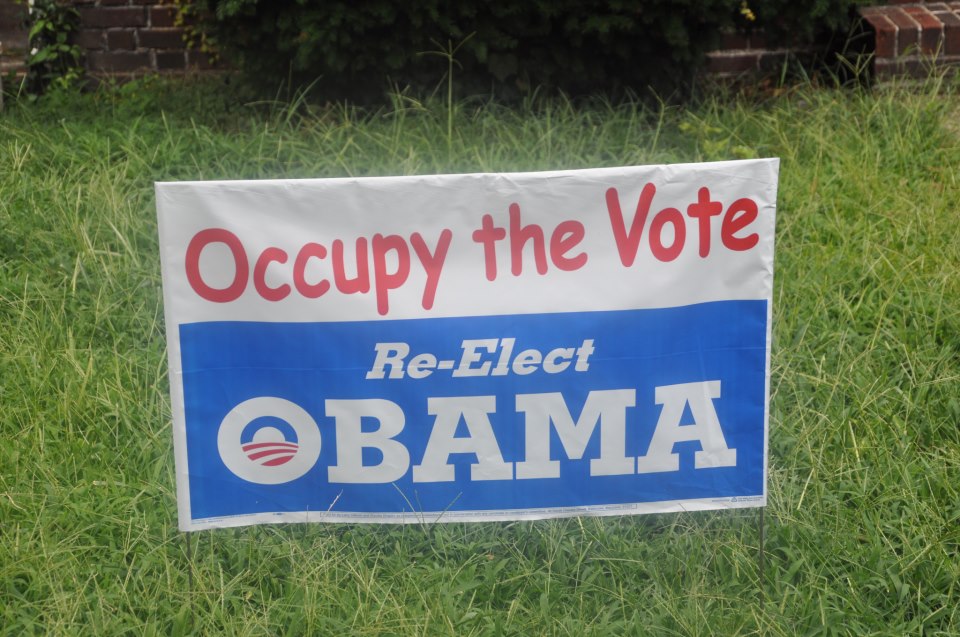Toward A Really Social Safety Net
These are consolidated from a pair of comments that I made in a thread back around last November on Thaddeus Russell’s Facebook wall. The thread was originally about some silly noise that comes up about once every four years, but it branched out into some interesting discussions about the left, individualist and libertarian perspectives, and so on. My interlocutor’s questions unfortunately seem to have disappeared from the thread, and I hate leaving writing locked up in a web silo, especially in the middle of a big, gradually composting discussion thread, so I’ve tried to condense it into a post here.
I’ve often been asked — by friendly-but-skeptical leftists, and even sometimes by fellow anti-capitalist anarchists — why market libertarians — who may be opposed to the government war machine, police, prisons, and all the other obviously destructive and repressive and regressive things done by the state, for fairly obvious reasons — are also so opposed to, and so hard on, social programs, like TANF, food stamps, WIC, Medicaid, Social Security, etcetera. (The question is usually posed in terms of contrasting government programs that hurt and kill people with government programs that, at least in principle, are supposed to be helping people.
) And there are different ways to think about this. To a great extent, left-wing market anarchists don’t spend a lot of time focusing on social programs, and generally insist on prioritizing the core state violence and primary interventions of war, police, prisons, prohibitions, borders, and bail-outs as categorically more important than, say, opposing Medicaid or complaining about government spending on food stamps. And as a matter of strategic priorities, I agree — opposing the crowbars will always be more important to my idea of liberation than imposing the crutches. But I don’t think that means that there is nothing to say about problems that are inherent to the welfare state and government social programs, or that they ought to be considered as neutral or benign. Left-wing market anarchists have important reasons to oppose them — reasons to oppose governmental social programs, not from the economic Right, but from the radical Left.
So when I am asked, what I can say is that this doesn’t have all of the reasons, but it does have some of them:
. . . The key to an understanding of relief-giving is in the functions it serves for the larger economic and political order, for relief is a secondary and supportive institution. Historical evidence suggests that relief arrangements are initiated or expanded during the occasional outbreaks of civil disorder produced by mass unemployment, and are then abolished or contracted when political stability is restored. We shall argue that expansive relief policies are designed to mute civil disorder, and restrictive ones to reinforce work norms. In other words, relief policies are cyclical–liberal or restrictive depending on the problems of regulation in the larger society with which government must contend. Since this view clearly belies the popular supposition that government social policies, including relief policies, are becoming progressively more responsible, humane, and generous, a few words about this popular supposition and its applicability to relief are in order.
There is no gainsaying that the role of government has expanded in those domestic matters called
social welfare.One has only to look at the steadily increasing expenditures by local, state, and national governments for programs in housing, health care, education, and the like. . . . But most such social welfare activity has not greatly aided the poor, precisely because the poor ordinarily have little influence on government. Indeed,social welfareprograms designed for other groups frequently ride roughshod over the poor, as when New Deal agricultural subsidies resulted in the displacement of great numbers of tenant farmers and sharecroppers, or when urban renewal schemes deprived blacks of their urban neighborhoods. . . . As for relief programs themselves, the historical pattern is clearly not one of progressive liberalization; it is rather a record of periodically expanding and contracting relief rolls as the system performs its two main functions: maintaining civil order and enforcing work. . . . But much more should be understood of this mechanism than merely that it reinforces work norms. It also goes far toward defining and enforcing the terms on which different classes of people are made to do different kinds of work; relief arrangements, in other words, have a great deal to do with maintaining social and economic inequities. The indignities and cruelties of the dole are no deterrent to indolence among the rich; but for the poor person, the specter of ending up onthe welfareor inthe poorhousemakes any job at any wage a preferable alternative. And so the issue is not the relative merit of work itself; it is rather how some people are made to do the harshest work for the least reward.–Francis Fox Piven & Richard A. Clower (1970)
Introduction to Regulating the Poor: The Functions of Public Welfare
The left-wing market anarchist addition to this leftist analysis is, first, to point out the extent to which the forms of structural poverty, deprivation, marginalization, concentrations of wealth and ultimately the desperation and civil unrest that social programs are designed to mute,
are not simple or inevitable offshoots of market profit-taking, but rather themselves manufactured by the political entrenchment of capitalism and constantly reinforced and sustained through precisely the core state violence and primary interventions — the war, police, prisons, prohibitions, borders, bail-outs, military-industrial complex, monopolies, and other regressive and repressive functions of government — that we prioritize. (On which, see Markets Not Capitalism, etc.) And, second, to insist on the essential importance of positive grassroots, community-based alternatives rather than trying to save
or liberalize institutionalized government programs.
Social programs administered by government are a weak and alienating substitute for the grassroots, working-class institutions of mutual aid, labor solidarity and fighting unions that they were largely designed to crowd out, replace, or domesticate. Grassroots social movements aimed to provide relief and person-to-person solidarity by creating alternative institutions that would be in the hands of workers themselves, so that they could better take control of the conditions of their own lives and labor. Government social programs have systematically aimed to monopolize the relief while abandoning any effort at worker control, instead transferring power into the hands of a politically appointed bureaucracy, and largely leaving working folks’ interests at the mercy of party politics. See, for examples, David Beito’s From Mutual Aid to the Welfare State and Paul Buhle’s Taking Care of Business, or, more recently, scott crow’s Black Flags and Windmills or Occupy Sandy, etc.
So (as a left-wing market anarchist) I am all for social programs and a social safety net — but I should like them to be really genuinely social, rather than governmental. So in my view, a libertarian view on markets needn’t, and shouldn’t, have anything to do with economic Rightism or corporate power; it can just as easily mean advocating militant industrial unions, strikes, sit-ins, Food Not Bombs, neighborhood mutual aid, lodge practice contracts, Panther breakfasts, women’s self-help clinics, Common Ground, Occupy Sandy, etc. as models of grassroots social change. And — holding that these are models that are preferable to the politically-controlled, professional-class-dominated and highly paternalistic bureaucracies — OSHA, TANF, WIC, EEOC, Medicare, PPACA, FEMA, etc. — that political progressives are too often inclined to treat as the non-negotiable defining commitments of the economic Left.
In the original conversation that inspired this note, a friendly-but-skeptical progressive said that she appreciated the focus on grassroots, community-based forms of mutual aid, labor solidarity, and participatory safety nets; but wanted to know whether government programs might have a role to play given that grassroots organizing is always going to demand a very high level of social participation, and sometimes people might be looking for institutions that can handle some problems without everyone in the community constantly having to be constantly involved in everything that anyone might need. It was a good question, and I definitely understand the desire to be able to take a step back in some cases. (It’s certainly something I’ve often felt, as I’m sure anyone who’s ever done a lot of participating in a community effort or an activist project eventually does feel.) But what I’d want to say is that the important thing about grassroots, non-governmental group is not so much the fact of constant participation (I sure hope I don’t have to do that!) as the constant possibility of participation. And the possibility of withdrawal is if anything just as important (so if the local Food Not Bombs or Common Ground clinic becomes completely dysfunctional you can always leave and start devoting your efforts to something else more worthwhile. But if a county social-services office becomes completely dysfunctional, they typically stay paid regardless, since you don’t have any way to redirect how your personal tax dollars are allocated. That’s controlled by a political process and a fairly elaborate set of rules for evaluating civil-service performance, which are an awful lot of degrees removed from the people most aware of and directly affected by the dysfunction.)
In any case, as far as participation goes, sometimes you want to take a step back and let others do a lot of the work, and of course that can happen. (The lodges had officers and divided up organizational work among the members, Panther breakfasts and FNBs and free clinics served a lot of people in the community, some of whom volunteered to help out, lots of whom didn’t, and lots of whom would spend some time on and some time off.) But all of this is an important difference from the politically controlled programs, where there’s no opportunity to step up and take a participatory role, even if you want to; where if they are seriously underserving or misserving or treating their clients
in manipulative or exploitative ways, there isn’t any real remedy because they hold all the power in the relationship and the only voice you have in the proceedings, if any at all, are the incredibly attenuated processes of trying to vote in different political parties, etc.
I don’t know how much that answered the question, in the end; but I hope it at least points in a fruitful direction for thinking about what an answer would look like.
Also.
- Original Facebook thread (November 2012):
Believe it or not, I’m still undecided about what to do on Tuesday…
- GT 2007-03-22: It’s made of people.
- GT 2012-05-28: Universal health care does not mean government health care.
- GT 2007-10-25: Radical healthcare reform.
- GT 2008-03-06: On crutches and crowbars
- GT 2009-02-24: On the social engineering of the governmentalist Left and the social engineering of the governmentalist Right

